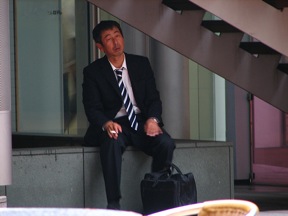The Japanese Health Ministry released some troubling statistics about work-related mental illness in 2007. One of the most dramatic revelations was that the number of suicides attributed to overwork, or karo jisatsu, more than doubled from 2006 to 2007. This dramatically brings home the point that poor workplace conditions can be emotionally and physically dangerous.
Overwork suicides are such a common problem in Japan that the Health Ministry has official guidelines allowing relatives to sue for compensation if the employee worked over 80 hours of overtime in the month preceding the suicide. For approximately 10% of those who committed suicide, the amount of overtime exceeded a staggering 160 hours.
American employers may want to dismiss this as a uniquely Japanese phenomenon because of the stereotype of the slavish Japanese salaryman, but much of the increase in overwork suicide can be attributed to a move towards more meritocratic incentive systems. Accustomed to lifelong job security and a predictable, incrementally increasing salary, many Japanese workers are unable to cope with the pay-for-performance programs that have grown in popularity over the past few years.

While many workers in America are protected from excessive hours by labor law and union contracts, many professionals usually have no shield against the relentless pressure to work more. Doctors, expected to work as long as it takes to save lives, have the highest rate of suicide of any profession. Lawyers, forced to bill as many hours as possible or lose their position, have the highest rates of depression. The high income of these professionals is well known, but too little attention is given to the high rates of mental illness that they suffer.
Moderate pressure can motivate employees, but this health report reminds us that unending or excessive stress can end careers rather than propel them forward. While hospitals and law firms are not always legally required to limit work hours, they would be well advised to do so voluntarily to keep their workers healthy.